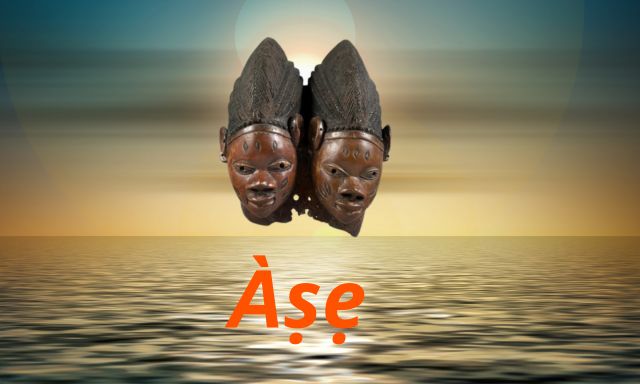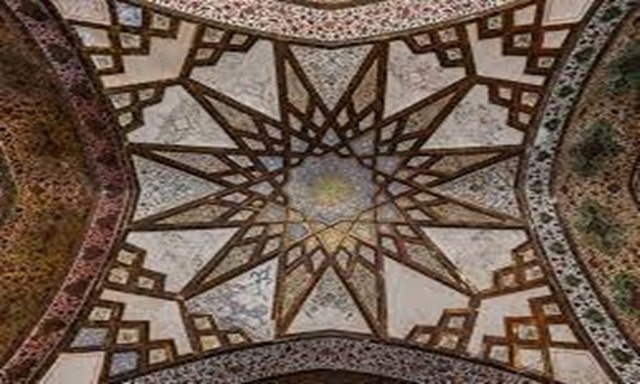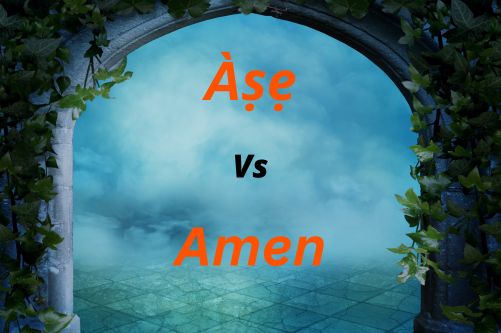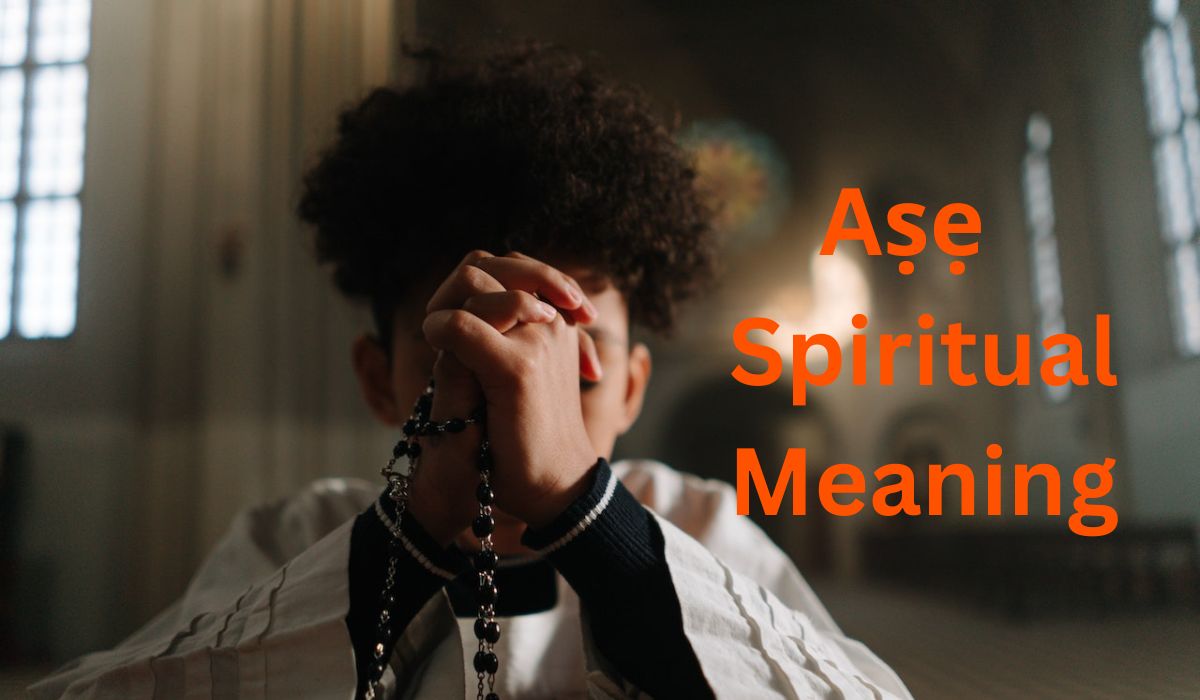Ase is a powerful spiritual force representing the universe’s energy and vitality. Ase is a concept that originated in the Yoruba religion of West Africa and is now widely used in various African diaspora religions, such as Vodou, Santeria, and Candomble. This article will explore Ase spiritual meaning and its significance in African diaspora religions.
What is Ase?
Ase is a Yoruba word that translates to “power” or “authority.” It is an invisible spiritual force that flows through all living and non-living things in the universe. Ase represents the life force that animates all things and the power that drives all existence.
In Yoruba religion, Ase also represents destiny or fate. It means that each person has a predetermined destiny, and the power of Ase shapes their life’s path. Ase also represents the concept of balance and harmony in the universe. When Ase is in balance, the world is in harmony, and everything flows smoothly.
Àṣẹ African Meaning in Yoruba Spirituality
“Àṣẹ” is a fundamental concept in Yoruba spirituality, embodying the divine power that fuels creation and transformation.

It serves as the life force that flows through all living things, connecting individuals to the spiritual realm and enabling them to manifest intentions.
Origin and meaning of Àṣẹ
Rooted in Yoruba culture, “àṣẹ” signifies the spiritual energy and power inherent in the universe. It is the essence of divine force that drives all existence and guides human endeavors.
Àṣẹ in Ritual and Ceremony
In Yoruba rituals and ceremonies, “àṣẹ” is invoked to channel divine energy and align with spiritual forces. Priests and practitioners harness the power of “àṣẹ” through prayers, chants, and offerings to effect change and manifest intentions.
Symbolism and Significance
Àṣẹ symbolizes the interconnectedness of all living things and the divine presence that permeates the universe. It represents the potential for growth, transformation, and renewal, guiding individuals on their spiritual journey.
Àṣẹ in Everyday Life
Beyond rituals and ceremonies, “àṣẹ” influences everyday life in Yoruba culture. It inspires individuals to live in harmony with nature, honor their ancestors, and uphold ethical values that promote communal well-being.
Cultural Legacy and Global Influence
The concept of “àṣẹ” has transcended its cultural origins, influencing various aspects of African diasporic spirituality and inspiring practices such as Santeria, Candomblé, and Vodou. Its universal appeal lies in its affirmation of the interconnectedness of humanity and the divine.
Àṣẹ Spiritual Meaning
“Àṣẹ” holds profound significance, embodying the divine energy that animates the universe and sustains all life. It serves as a guiding principle for aligning with the natural order and harnessing spiritual power.
The Essence of “Àṣẹ”
“Àṣẹ” represents the life force and divine power that flows through all living things, connecting individuals to the spiritual realm and the rhythms of creation.
Spiritual Practices and Rituals
In Yoruba cosmology, rituals, and ceremonies are imbued with the invocation of “Àṣẹ” to connect with spiritual forces and manifest intentions. Through prayers, chants, and offerings, practitioners seek alignment with divine energy.
Manifestation and Transformation
“Àṣẹ” catalyzes manifestation and transformation, enabling individuals to bring about positive change in their lives and communities. By aligning intentions with divine will, seekers tap into the power of “Àṣẹ” to unlock their true potential.
Ancestral Wisdom and Lineage
The wisdom of ancestors and lineage is deeply intertwined with the understanding of “Àṣẹ.” Through ancestral teachings and practices, individuals honor the spiritual essence of “Àṣẹ” and connect with the collective wisdom of generations past.
Living in Harmony
Embracing “Àṣẹ” involves living in harmony with oneself, others, and the natural world. It requires integrity, authenticity, and reverence for the interconnectedness of all beings, fostering balance and spiritual alignment.
Also Read: What Does Déjà Vu Mean Spiritually?
Àṣẹ Spiritual Meaning Pronunciation
The word “Àṣẹ” is pronounced as “ah-shay” in Yoruba. The first syllable, “ah,” is pronounced with an open “a” sound, like the “a” in “father.” The second syllable, “shay,” is pronounced with the “sh” sound followed by the long “a” sound as in “say.” Together, “Àṣẹ” is pronounced as “ah-shay,” with equal stress on both syllables.
Àṣẹ Spiritual Symbol
“Àṣẹ” is not typically represented by a specific visual symbol but is rather understood as a concept, essence, or spiritual force that permeates the universe.

wikipedia.org
However, some representations or depictions may include:
- A circular symbol or image representing the interconnectedness of all things.
- Depictions of natural elements such as water, trees, or animals, which are often associated with the life force and energy of “Àṣẹ.”
- Artistic expressions that evoke the dynamic and transformative qualities of “Àṣẹ,” such as abstract designs or patterns, symbolize the flow of energy and vitality.
- While these symbols may be used to evoke the essence of “Àṣẹ” in visual form, it is essential to remember that its true power lies in its intangible nature and its presence as a guiding force in Yoruba spirituality and cosmology.
Also Read: Spiritual Meaning Thunderstorms
How To Use Àṣẹ In Life?
Using “Àṣẹ” in life involves aligning with its principles and integrating its essence into daily practices and perspectives. Here are some ways to incorporate “Àṣẹ” into life:

Cultivate Awareness
Stay mindful of the interconnectedness of all things and the divine energy that flows through everything. Practice gratitude for the abundance of life and the opportunities for growth and transformation.
Set Intentions
Before embarking on tasks or endeavors, set clear intentions aligned with your highest good and the greater harmony of the universe. Visualize success and manifest positive outcomes with the power of intention.
Practice Rituals
Engage in rituals or ceremonies that honor the sacredness of life and connect you with spiritual forces. This may include meditation, prayer, offerings to ancestors or deities, or participation in community celebrations.
Live Authentically
Embrace your true self and honor your unique gifts and talents. Live in alignment with your values and principles, expressing yourself authentically in all aspects of life.
Cultivate Compassion
Extend compassion and kindness to yourself and others, recognizing the divine spark within each being. Foster empathy and understanding, and strive to create harmonious relationships and communities.
Embrace Change
Welcome change as a natural part of life and a catalyst for growth and evolution. Embrace challenges as opportunities for learning and transformation, trusting in the divine flow of “Àṣẹ” to guide you through life’s transitions.
Honor Ancestral Wisdom
Pay homage to the wisdom and guidance of your ancestors, acknowledging their contributions to your journey and drawing strength from their collective experience. Incorporate ancestral practices and traditions into your life to honor their legacy and connect with your roots.
Also Read: White Feathers Spiritual Meaning
Àṣẹ vs Amen
“Àṣẹ” and “Amen” are expressions used in spiritual contexts, but they originate from different cultural and religious traditions.

“Àṣẹ”
“Àṣẹ” is a concept originating from Yoruba spirituality in West Africa. It represents the life force, divine energy, and power that permeates the universe. “Àṣẹ” is invoked in rituals, prayers, and ceremonies to connect with spiritual forces, manifest intentions, and bring positive change. It embodies the essence of divine vitality and serves as a guiding principle for living in alignment with the rhythms of the universe.
“Amen”
“Amen” is a word derived from ancient Semitic languages and is primarily used in the context of Judeo-Christian and Islamic traditions. It is often used as an affirmation or agreement at the end of prayers or statements of belief. In Christianity, “Amen” expresses agreement with or confirmation of a statement, prayer, or blessing. It signifies trust in God’s will and the certainty of the truth being spoken.
While both “Àṣẹ” and “Amen” are expressions used in spiritual contexts, they represent distinct cultural and religious traditions with unique meanings and usages. “Àṣẹ” is deeply rooted in Yoruba cosmology and embodies the concept of divine energy and vitality, while “Amen” is a widely recognized affirmation of faith and agreement in Abrahamic religions.
Also Read: Spiritual Meaning Orange
Significance of Ase in African Diaspora Religions
Ase is a fundamental concept in many African diaspora religions, often called “Ashé” or “Axé.” In these religions, Ase is an energy that empowers spiritual rituals and practices.
For example, in Vodou, Ase is the force that gives power to the loa, or spirits, invoked during spiritual ceremonies. In Santeria, Ase is the power that gives life to the orishas or deities and enables them to communicate with the human world. In Candomble, Ase is the power that connects the practitioners with the orixas, the religion’s deities.
Ase is also an essential component of spiritual practices in these religions. Ase is also a sign of a powerful force that can bring healing, protection, and prosperity to those who harness its power. Practitioners use various tools, such as dance, drumming, and chanting, to build up the energy of Ase and direct it toward their goals.
Frequently Asked Questions
1. What Does Ase Mean Spiritually?
The spiritual meaning of Ase is closely tied to its significance in African diaspora religions. Ase represents the energy and vitality of the universe, and it is the force that gives power to all spiritual practices and rituals.
2. How do you pronounce Asè?
“Asè” is pronounced as “ah-shay” in Yoruba. The first syllable, “ah,” has an open “a” sound, while the second syllable, “shay,” is pronounced with the “sh” sound followed by the long “a” as in “say.”
3. What does Asè mean in the Bible?
“Asè” is not directly referenced in the Bible; it is a Yoruba spiritual concept. The Bible predominantly uses the term “Amen” as an affirmation, expressing agreement or certainty.
4. What is ASE in African language?
In various African languages, “Asè” is associated with power, authority, or command. However, its specific meaning can vary among different linguistic and cultural contexts.
5. Is Asè and Amen the same?
No, “Asè” and “Amen” are not the same. “Asè” is rooted in Yoruba spirituality, representing divine energy, while “Amen” is a widely used affirmation in Abrahamic religions, expressing agreement or confirmation, particularly in Christianity and Islam.
Conclusion
In conclusion, Ase is a powerful spiritual force representing the universe’s energy and vitality. It is a fundamental concept in many African diaspora religions. It is believed to be the force that empowers spiritual practices and rituals.
Ase represents the power of creation and destruction, reminding us of the cyclical nature of life and death. It is a force that gives us the strength and determination to pursue our destiny and overcome any obstacles that may stand in our way. The spiritual meaning of Ase emphasizes the interconnectedness of all things and the importance of balance and harmony in the universe.
The concept of Ase is a powerful reminder of the importance of connecting with the spiritual world and harnessing the universe’s energy. By tapping into the power of Ase, we can achieve our goals and find harmony and balance in our lives.

